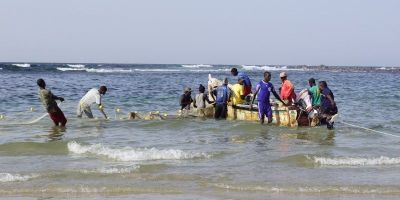Leeds staff, alumni & students guide on Malawian Climate Adaptation Options

Climate change impacts are being felt the world over, but nowhere more so than sub-Saharan Africa.
Even within this region, certain areas are particularly vulnerable and past research by CCCEP (Abson et al., 2012; Simelton et al., 2012) highlighted that Malawi is one of the worst affected by greater variability in climate affecting crop yields and food security of its population.
To help address these issues, Prof Andy Dougill is leading two NERC/DFID-funded research projects to assess climate adaptation options in agriculture and water resource management for southern Malawi. This work is enabled through a strong network of alumni and current students / staff working in the environmental sector across the country.
These studies are all built on strong collaborative working with David Mkwambisi (PhD, SEE 2008), the Programmes Co-ordinator at Lilongwe University of Agriculture and Natural Resources (LUANAR). David’s doctoral studies showed the potential of urban agriculture around the major cities of Lilongwe and Blantyre (Mkwambisi et al., 2011) and identified interventions for government to ensure that urban food systems maximised this important local food source.
Agriculture remains at the forefront of the Malawian economy (with c. 85% of population active in the sector) and evaluating land management options is central to ongoing research. Notably, we are funding the continuation of field trial studies at the Chitedze Agricultural Research Station to assess the impacts of widely advocated ‘conservation agriculture’ practices on maize yields and crop pest problems. Conservation agriculture (CA) is based on not tilling the soil, returning crop residues to the soil surface and rotation cropping with legumes, with the aim of maximising soil conservation, organic matter and nutrient levels. SEE post-doc Peter Steward (PhD, Biology 2014) is currently at Chitedze running this field trial (with the 2016/17 crop planted on December 6th). This trial is developing new approaches to assess crop pest problems and the impact of dry spells early in a growing season, which are predicted to become greater problems under future climates.
Our work on Conservation Agriculture is also exploring knowledge gaps and institutional barriers that are preventing its widespread adoption across Malawi (Dougill et al., 2016). This work is being extended through the PhD studies of Edna Chinseu, a staff member of the Government Department of Agricultural Research. Edna is working in Lilongwe and Dowa Districts to explore the reasons for farmers failing to continue with CA practices. Key issues around the short-term nature of input incentives (fertilisers and seeds), the additional labour associated with weeding in no-till systems and the association of tilling as the ‘traditional’ Malawian way are being shown as critical in affecting farmer willingness to sustain CA practices.
It remains vital that field evidence is provided to assess CA yield performance and livelihood impacts, compared to traditional tillage practices in a range of climatic conditions, especially through dry years. To this end, Eleanor Jew (PhD, SEE 2015) is the lead researcher on a NERC/DFID funded project assessing ‘Agricultural Climate Resilience to El Niño in sub-Saharan Africa’. This project works in 3 Districts of southern Malawi (Balaka, Machinga and Thyolo) to assess resilience of CA farmers compared to those practicing traditional tillage through the 2015/16 El Niño event. Preliminary findings are showing that CA provides some enhanced resilience to dry spells, but only where this is linked to interventions also targeting improved household health and poverty reduction. Such holistic projects have been supported by the ‘Enhancing Community Resilience Programme’. Using funds from a LSSI IAA award Ben Wood (PhD, SEE 2016) is currently working with Concern Universal to assess the impacts of solar light initiatives on the empowerment of communities to enhance their resilience to changing social, economic and climatic conditions.
Climate resilience and planning for future climates, requires a longer timeframe. Consequently, with LUANAR & Kulima Integrated Development Solutions, we are leading Malawian work as part of the NERC/DFID funded ‘Future Climate for Africa’ programme and the UMFULA regional consortium project. Our initial study showed that government ministries and departments are not yet using medium- to long-term (5-40 year) climate projections in their planning (Vincent et al., 2015). UMFULA will now generate higher quality, more useful climate information and make this more tailored and accessible to water resource management and agricultural development planners. Leeds researcher Ajay Bhave has met with staff from across Government ministries, departments, donor organisations and private sector companies to guide on the development of water resource models for the Shire River Basin. He will lead decision-making exercises based on linking climate scenarios and water management interventions (e.g. major irrigation plans) to be run through 2017.
The UMFULA project is part-funding the MSc Environment and Development studies of Diana Mataya. For her MSc thesis, Diana will be evaluating the impacts of climate change related training programmes that have been run across Government departments over recent years. This will help to guide future staff training priorities to ensure that climate change adaptation planning systems improve in future years.
Leeds sphere of environmental policy and practice impacts extends beyond the funded research programmes, with an active alumni base supporting a range of independent (but complementary) activities. For example on the recent research trip, we met with Sothini Nyirenda (MSc Climate Change, 2012) who is the Programme Analyst – Climate Change & Disaster Risk Reduction for the United Nations Development Programme. In this role, Sothini has responsibility for major UN-funded projects on developing early warning systems and climate information centres. He is also working with Government to develop their National Resilience Plan.
Others guiding on important aspects of building agricultural resilience to climate change include Betty Chinyamunyamu (PhD, 2014) who is Deputy Chief Executive of the National Smallholders Association of Malawi (NASFAM) and Beth Harrison (PhD, 2014) who is a project manager for the NGO One Acre Fund based in Zomba.




